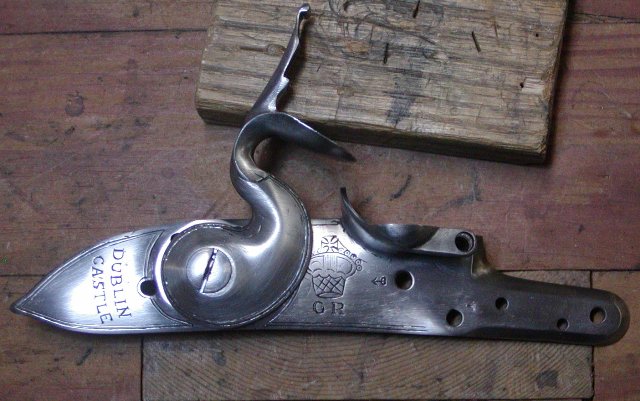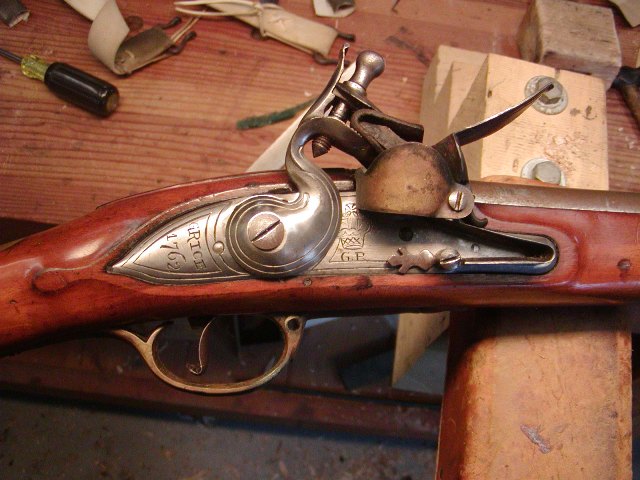- Joined
- Nov 1, 2018
- Messages
- 3,884
- Reaction score
- 2,914

Out of curiosity does anyone know if this groove is present on the original 1800’s BB’s/Charlevilles or is it a new and modern idea?
I suspect this would leave either exposed threads or a gap between the breech face and the barrel. This would be a place where fouling/coke can build up and, in rapid fire situations, it can start to glow and/or get hot enough to cause a cookoff when dumping in the next charge.New guy question here, wouldnt it be better to shorten or use a shorter plug so the chamber area was nice and flat and easier to clean?

Hi Bob,Dave, beautiful work through all those challenges. The owner should be proud of his new firelock.
The Bess looks funny without the beaver tail finials on the lock panels.
Hi,My Pedersoli has such a smooth and glossy finish it looks odd.
Hi,Dave I’ve come across an orpahed pedersoli Brown Bess lock. I was going to use my TIG welder to weld up the Grice 1762 markings.
We’re there any examples of brown Bess’s with unmarked plates ?


Hi Dave, thanks for that explanation about the lock mouldings. As time went along they really did simplify the Bess and eliminated various “artistic” elements like those beaver tails.Hi Bob,
Thanks for nice comment. The irony in what you wrote about the beaver tails is that those carved details were only on the first pattern (1730) Bess and dropped in the very next pattern. Of the approximately 3.7 million Brown Besses made during its operational career, less than 100,000 had those beaver tails. The way I carved the tails of the lock and side plate panels is found on some Irish and Tower Besses but is much more nicely shaped than the vast majority of Besses. They really did not fuss much over that detail and most were indifferently shaped at best. One thing I did this time was really restrain my fussing over the finish of the gun. I almost always finish these Besses much better than the originals, which often were simply file finished. This time my student and I went at it with files, scrapers, and sandpaper but left a lot of marks and scratches. With a slightly shiny finish, it really looks pretty good. I kind of like it. We also only whiskered the stock once so the surface is not glassy like a higher end gun. On the next one I am going to try and restrain myself even more but it is hard because I like well finished stuff.
dave
When I built my Navy Arms/Pedersoli BB kit in the 1970s the breech plug was magnetized. Don't ask me why. Still a puzzlement.This is my navy arms charleville breech plug. The groove is much wider, this is the most reliable musket I own, it has never misfired once in 20 years of my ownership, the other 10-20 years from the previous owner, I’m not sure.
Enter your email address to join: